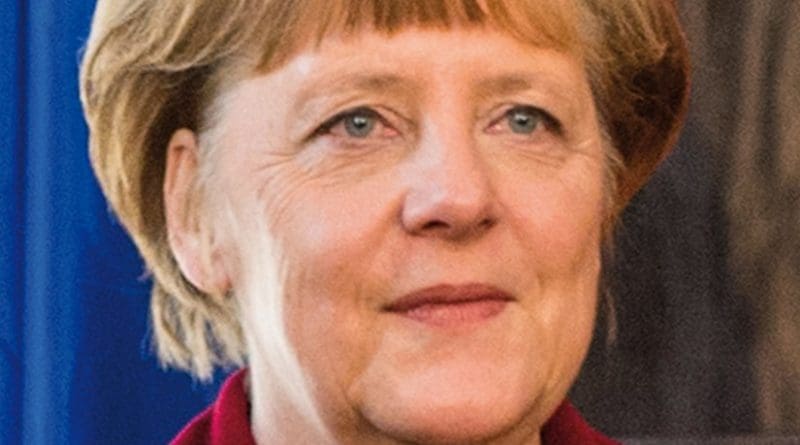Merkel-Davutoglu Wheeling-Dealing Wrecks EU Summit
By EurActiv
By Catherine Stupp and Georgi Gotev
(EurActiv) — The EU summit which ended this morning (8 March) failed to reach a deal with Turkey to stem the unprecedented migrant crisis, as many heads of state and government opposed German Chancellor Merkel’s attempt to impose her own deal with Ankara.
Turkish Prime Minister Ahmet Davutoğlu will return to another EU summit next week on 17-18 March. A vast majority of heads of state and government were reportedly frustrated and even outraged by an attempt to substitute EU decision making with a controversial deal brokered by Berlin.
A diplomat from the Visegrad Four group spoke of “the big frustration” of most of the EU heads of state and government after Merkel and Prime Minister Mark Rutte of the Netherlands, which holds the current rotating EU Council presidency, substituted the draft agreement crafted by the 28 ambassadors with a deal they agreed late on 6 March with Davutoğlu. Council President Donald Tusk was reportedly the most frustrated of all.
Indeed, the EU ambassadors had drafted a declaration that was expected to be adopted at the summit on 7 March. European leaders were expected to declare Monday that they will “close the Balkans route in the coming days,” ending the “wave-through approach” to migrants that has caused chaos and tension in Europe.
But the trilateral pre-summit meeting produced a completely different text, according to which Turkey would readmit all migrants crossing into the Greek islands from its territory. For every Syrian readmitted by Turkey from Greek islands, another Syrian will be resettled from Turkey to the EU member states. This formula, called “one for one”, means that if NATO or another force intercepts a boat with, say, 50 people, among whom 10 are Syrian, all of them will be rescued and sent to Turkey. Then the EU will be obligated to take 10 Syrians (not the same people, though) from Turkey and send them by plane to EU countries.
In exchange, the EU would commit to cover the costs of the readmission process, pay an additional €3 billion for refugees in Turkey living outside the camps, speed up lifting the visa requirement for Turkish nationals by June of this year, open five negotiation chapters in Turkey’s EU accession bid and resettle Syrians from Turkey to EU countries under the “one for one” formula.
Legal questions
Article 19 of the Charter of Fundamental Rights of the European Union (2000) says that “Collective expulsions are forbidden.” The UN Convention on refugees from 1951 prohibits contracting parties (all EU member states are contracting parties) from expelling or returning (pushing back) refugees, except on grounds of public order.
Asked about the legal basis of such a de facto push-back of refugees, a diplomat said that they would not be pushed back, but saved.
The author of the plan is Davutoğlu, but Merkel embraced it completely, calling the deal “a breakthrough if it’s implemented”.
Speaking at a press conference following the summit, Merkel acknowledged that.
“I have to say honestly we welcomed [Davutoglu’s proposal], better to make the proposal now than not to make it at all,” Merkel said, though she acknowledged the last minute change made negotiations tough.
The spokesperson of the Hungarian government tweeted that Prime Minsiter Victor Orbán had vetoed the plan to resettle asylum seekers directly from Turkey to EU countries.
But later diplomats said there was no need for a veto from any individual country because many countries opposed the proposal.
Germany reportedly had no problems accepting to pay its share from the additional amount of €3 billion. But other countries were reluctant to commit more funds to Turkey, in part because the number of migrants arriving on the Greek islands has so far not decreased.
The summit broke out into over three hours of bilateral consultations. A Statement was adopted following the talks, according to which EU leaders agreed to work on the basis of Turkey’s proposals. Tusk will continue the process ahead of the next summit.
One of the statement’s texts says that the document does not give member states any new commitments concerning relocation and resettlement. However, if the formula “one for one” is adopted, this necessarily means that Syrians would be resettled to EU countries from Turkey.
Speaking to the press, Davutoğlu said that Turkey was not demanding money, but fair burden sharing. Not a single cent would be spent for Turkish citizens, the €3 billion will be for refugees only, he stressed.
Electoral test
Merkel is under stiff pressure ahead of German regional elections this Sunday.
On 13 March, Germany will hold an election in three of Germany’s 16 states: Saxony-Anhalt, Rheinland-Pfalz and Baden-Württemberg.
Merkel is also still reeling from big wins for the right-wing party Alternative für Deutschland—which has sharply criticised Merkel’s migration policy—in the Hesse state election last Sunday (6 March).
The vote is seen as a first electoral test of Merkel’s immigration policies, as it is expected to measure confidence in her CDU party and the upsurge of anti-immigration sentiment in German society.
“There is no consideration whatsoever for national political appointments,” Merkel said of the upcoming elections.
“There were elections in Slovakia and elsewhere,” she added. In fact, the Slovak elections turned to be a major disappointment for the Prime Minister Robert Fico.
Merkel declared “today was a good day but there is still work left until 18 March”.

